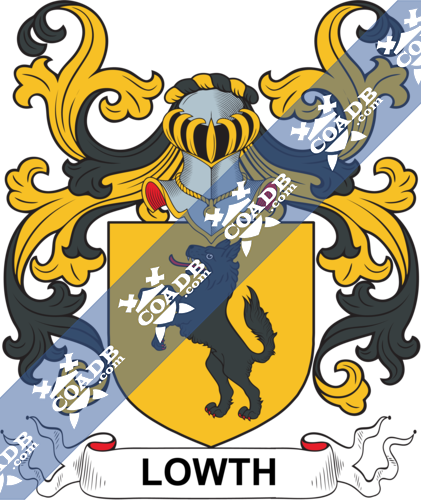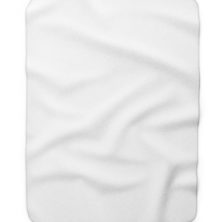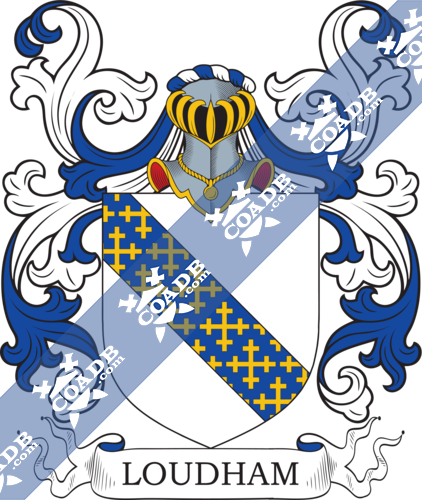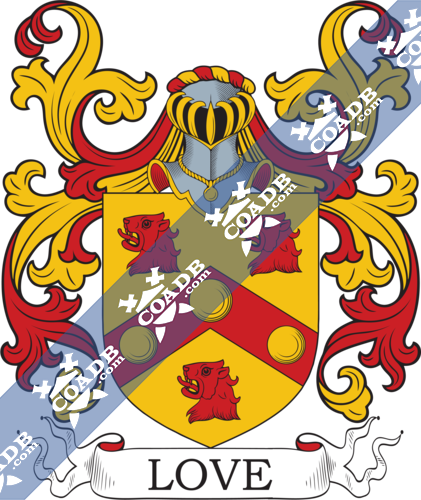Louth Family Crest, Coat of Arms and Name History
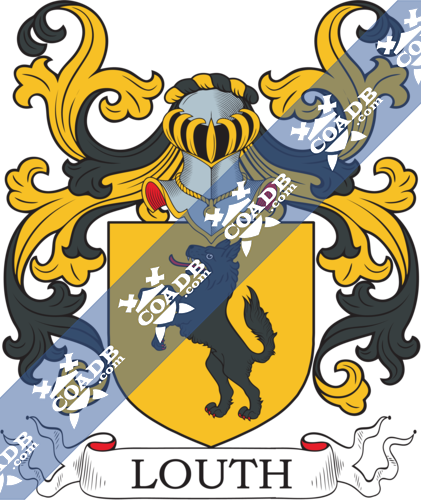
Louth Coat of Arms Gallery
Don’t know which Coat of Arms is yours?
We can do a genealogical research. Find out the exact history of your family!
Learn MoreLouth Origin:
England
Origins of Louth:
According to the early recordings of the spellings of the name, this interesting and unique name was listed as Louth, Louthe, Lowth, Loweth and possibly much more, this is an early English surname. It is geographical from the town of Louth in the division of Lincolnshire. The origin of the town name and hence the next surname is from the Olde English and Scandinavian (Viking) pre 7th-century “luda,” the word being imitational for a “loud” river. As the area around Louth is fenland and very smooth, and the likelihood of a river being “loud” is rather unlikely. It shows that the word obtained from some other place where the river was more “luda.” The oldest records of the place name records back to the famous Anglo-Saxon records of the year 730 when source made to “Hludensis Monasterium,” or the monastery on the Hlud. In the Domesday Book of 1086, the town name was given as “Lude,” the new spelling coming many centuries later. Early examples of the surname documentation acquired from the official records of the time contain as John de Luda in the Hundred Rolls of Lincoln in 1273, and Eva Louth of Somerset in the Hundred Rolls of that division in 1327. Susan Louthe named at Belchford, in 1591, and Robert Lowth at Stickney in 1598. Both these hamlets being in Lincolnshire.
Variations:
More common variations are: Louthe, Loeuth, Louthi, Loutha, Louthu, Loth, Luth, Louthey, Louthay, Lowth.
England:
The surname Louth first appeared in Lincolnshire at Louth, a market-town, and church. The old Latin name of this town was Luda, from its proximity to the Lud, a small water source created by the junction of two rivulets. By the time of the Domesday Book of 1086, the church known as Lude, and completely meant “Hlude, which means the loud one, the noisy lake.” The first record of the name was William of Louth (died 1298), an old priest of Ely. It commonly considered that he was born in Louth, but his family in unknown. After the accession of King Edward I of England, the king selected him Cofferer of the wardrobe, in October 1274. He elected to the see of Ely in May 1290 and dedicated in October 1290. He was buried in Ely Cathedral. William of Louth’s seal, now kept in the British Museum.
The very first recording spelling of the family was shown to be that of Robert de Luda, dated about 1272, in the “Curia Regis rolls of the city of York.” It was during the time of King Edward 1st, who was known to be the “The Hammer of the Scots,” dated 1272-1307. The origin of surnames during this period became a necessity with the introduction of personal taxation. It came to be known as Poll Tax in England.
Ireland:
Many of the people with surname Louth had moved to Ireland during the 17th century.
United States of America:
Individuals with the surname Louth landed in the United States in two different centuries respectively in the 17th, and 19th. Some of the people with the name Louth who arrived in the United States in the 17th century included John Louth, who came to Virginia in 1690.
The following century saw more Louth surnames arrive. Some of the people with the surname Louth who arrived in the United States in the 19th century included Thomas Louth, who settled in Indiana in 1818. Edward Louth, who came to Vermont in 1826. James Louth, who came to Vermont in 1828. Anna Louth at the age of 11, who came to Baltimore in 1831.
Here is the population distribution of the last name Louth: England 796; United States 653; Canada 153; Ireland 126; Australia 87; Indonesia 65; Scotland 26; Zimbabwe 16; Spain 14; New Zealand 14.
Notable People:
Father Andrew Louth is a bishop of the Russian Orthodox Parish and Professor in the section of Theology and Religion and Conservative minister at the University of Durham in Durham, England.
Blazons & Genealogy Notes
(co. Lincoln). Or, a wolf saliant sa. armed gu. (another, armed or).

